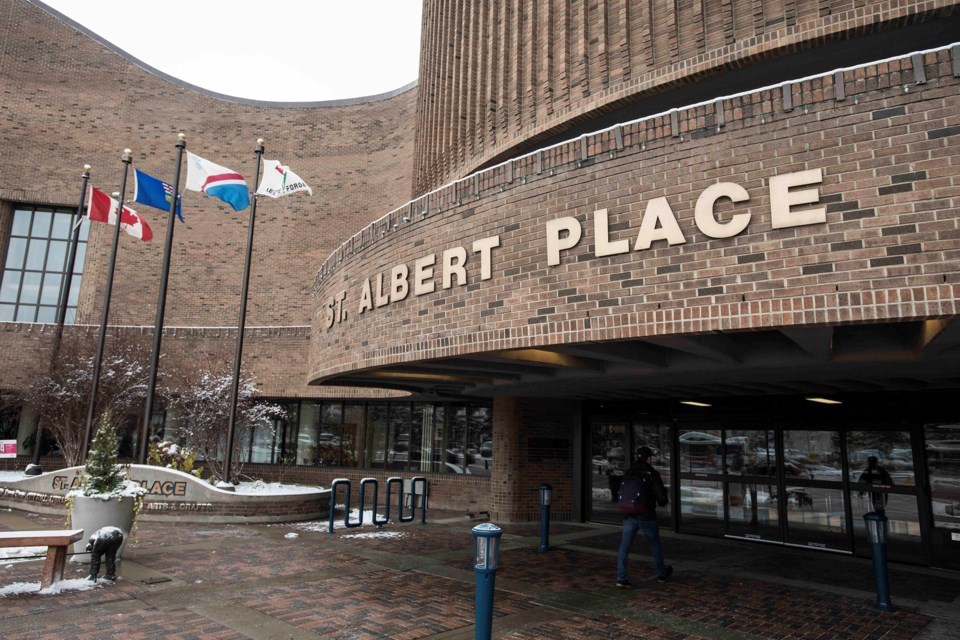People looking to have certain St. Albert streets, neighbourhoods, and other municipal assets be renamed can now submit applications through the city's website, in accordance with the new municipal naming policy that took effect last month.
The policy, which took nearly two years to develop, established new criteria for prospective and existing non-commemorative and commemorative names, such as the five streets and crescents named after Bishop Vital-Justin Grandin. Grandin was an Oblate priest and the first bishop in St. Albert who also played a significant role in creating and perpetuating the residential school system in Canada. The criteria can be read in full on the city's website, and dictates commemorative names must not refer to historical people known for their discriminatory views and actions, bring St. Albert “into disrepute,” and more.
Despite the new naming policy taking effect last month, the city's chief administrative officer Bill Fletcher just recently signed off on an “administrative directive,” which formally establishes the process for applications to be submitted.
In an interview, Fletcher said the process starts by requiring an individual looking to submit an application for a certain name to be removed to gain and document the support of at least 50 individuals either in the form of petition signatures or letters. These supporting individuals, as well as the application submitter, must have a “substantial connection” to St. Albert. Fletcher said the meaning of "substantial connection to St. Albert" will be determined on a case-by-case basis.
“It's deliberately vague,” he said. “When we look at the entirety of our history and heritage of the land we're on, there is a need to ensure that people who had a familial or historical connection to the land upon which St. Albert sits can be heard.”
“The no-brainers are residents or business owners ... but if you've got a strong familial connection, like you lived here for years and are perhaps out of town for some reason, those are things on a case-by-case basis that we would look at.”
Fletcher said city staff settled on requiring a minimum of 50 signatures or letters of support because it indicates a level of community support that warrants a review.
“There's no scientific formula that came up with 50,” he said. “I believe [50] provides an indication of community support beyond an individual or a small organization — you actually have to do a little bit of work to justify it — and it's not so onerous as to be something that nobody can ever achieve.”
Once the minimum level of documented support is obtained, applications can be submitted through an online portal on the city's website or in person at city hall. An application must also include a rationale for why the name in question should be removed, and petition and support letter templates can be downloaded from the city's website.
A naming committee with representatives from eight city departments, as well as a representative from the St. Albert Arts and Heritage Foundation, will meet four times a year to review any applications received by the city.
Those reviews will consist of the committee determining whether a name being applied for meets the policy-set criteria, and prior to making a final decision, the committee can consult and engage relevant and affected community groups and equity-deserving groups.
If the committee finds the application and name in question does not meet the criteria, a two-year moratorium on the name being considered for renaming begins.
If it is determined to meet the criteria for renaming, the naming committee must recommend to council the asset be renamed, while also providing a recommendation for a new name that either meets the new policy-determined criteria for appropriate names, or is drawn from an existing list of pre-approved names.
City council will be responsible for making the final decision on whether a city asset is renamed.
“The thought process here is to have a very defined deliberate process, regardless of whether we're adding or changing something,” Fletcher said.
“We'll see whether it gets tested or not.”
'Just change it'
Corina Hollingworth, a member of Enoch Cree Nation and former St. Albert resident, said she's concerned the city's process falls short when it comes to the more obvious commemorative names in St. Albert, like Grandin, that started the whole policy development process.
“The [policy] would do good if they actually just go and change the name,” she said. “It's not that hard of a process, just change it.”
“They've already had multiple people come forward and say that these names represent people who did horrible things to First Nations and Métis people.”
Fletcher said the city's naming policy and the process to submit applications doesn't stop council from putting a motion forward to address certain names.
“None of this precludes council from making a motion and just voting on something,” Fletcher said. “It's still an option.”
“This [policy] is really about that grassroots push on this.”
Hollingworth said she thinks she'll be submitting a renaming application to the city in the future, but hopes council or the city takes the first step.
“The best thing they could possibly do right now is just change the name.”




